Small Business Insurance Services
We’re experts in small business insurance, armed with deep understanding and years of experience. We know each business is unique, requiring tailored insurance plans to manage potential risks.
We’re not just providing insurance, we’re committed to helping you grasp the different coverages available. From property insurance to workers’ compensation, we’ve got you covered.

Book a time to chat or give us a call anytime. Let’s spend 20-30 minutes chatting it up about your business and see what’s going on!
Understanding Small Business Insurance
In our pursuit of clarity, we’ll first delve into comprehending the essence of small business insurance services.
This type of insurance provides critical protection for small businesses, safeguarding them from potential financial losses caused by unforeseen events such as property damage, theft, liability claims or employee injuries. It’s a cornerstone of prudent business management, offering a safety net that can keep a business afloat in times of crisis.
Various coverage options are available, tailored to the unique risks and needs of different business types. Understanding the intricacies of these options is vital. It enables us to make informed decisions, ensuring we secure the most appropriate and comprehensive coverage for our businesses.
Knowledge of small business insurance services isn’t just essential—it’s empowering.
The Importance of Insurance for Small Businesses
While we often view insurance as a grudging necessity, it’s actually a vital part of securing our small businesses’ future. Here’s why:
- Risk Management: Insurance offsets financial risks related to unforeseen circumstances.
- Legal Requirements: Many jurisdictions legally mandate certain types of insurance.
- Credibility: It demonstrates to clients and investors our commitment to protecting our business.
- Employee Protection: Insurance like workers’ compensation ensures the safety of our team.
- Business Continuity: In the face of disaster, insurance can be the lifeline that keeps our business afloat.
In essence, insurance isn’t just about safeguarding against potential losses—it’s an investment in the stability and longevity of our small business.
Next, we’ll delve into the types of insurance services suitable for small businesses.
Types of Insurance Services for Small Businesses
Moving forward from understanding the importance of insurance, let’s now delve into the different types of insurance services available for our small businesses.
Firstly, there’s professional liability insurance, which offers protection against negligence claims.
Property insurance is crucial as it covers equipment, inventory, and sometimes income loss.
Worker’s compensation insurance is necessary once the first employee is hired, covering medical treatment, disability, and death benefits in case an accident occurs.
Furthermore, we’ve product liability insurance for businesses manufacturing products for sale, and vehicle insurance for company cars.
Lastly, business interruption insurance compensates for lost income during events that disrupt the normal course of business.
It’s essential to understand these diverse services to choose the right fit for your business.
Decoding Commercial Property Insurance
Let’s unravel the complexity of commercial property insurance, an essential safeguard for our business assets. This type of coverage is integral, protecting businesses from substantial financial losses due to damage or loss of physical assets.
It covers damage to property like buildings, fixtures, and inventory.
It protects from natural disasters, theft, and vandalism.
It can cover income lost due to such damage (Business Interruption Insurance).
It often includes liability protection for accidents on the property.
It’s usually customizable to meet specific business needs.
Understanding these facets helps us ensure our business is adequately protected. Remember, each policy varies in coverage and exclusions.
Now that we’ve decoded commercial property insurance, let’s transition into understanding the role of general liability insurance.
The Role of General Liability Insurance
In the realm of small business insurance, we’re now turning our attention to general liability insurance, a critical component in our shield against potential financial damages. It’s the first line of defense against common claims. It safeguards your business from incidents such as bodily injury, property damage, and advertising injury.
To further understand, let’s look at this table:
| Risk Factor | How General Liability Insurance Helps |
|---|---|
| Bodily Injury | Covers medical costs and legal fees |
| Property Damage | Pays for repairs or replacement |
| Advertising Injury | Handles legal defense costs |
| Product Liability | Protects against claims for damage caused by your product |
| Reputation Harm | Covers against slander and libel claims |
We’re here to help you understand the importance of this insurance and how it protects your business from potential risks.
Insights Into Workers’ Compensation Insurance
We’re about to delve into the crucial details of workers’ compensation insurance, an essential safety net for your employees and your business. This type of insurance is designed to protect your employees if they’re injured on the job, providing them with the financial support they need while they recover.
Consider the following:
- It covers medical expenses associated with the injury.
- It provides wage replacement during the recovery period.
- It protects the employer from potential lawsuits.
- It’s mandatory in most states.
- It can help maintain morale and productivity among your staff.
Understanding workers’ compensation insurance is vital for small businesses. It’s not just about meeting legal requirements but also about taking care of your most valuable asset – your employees.
Business Interruption Insurance Explained
During times of unforeseen business interruptions, it’s our insurance that keeps us afloat, providing crucial financial support to weather the storm. Business interruption insurance, specifically, is designed to compensate for the financial loss a company experiences during a disruptive event. This could be a natural disaster, a power outage, or even a pandemic.
It covers not just the lost income, but also the expenses we’d normally have during regular operations, like rent or staff wages. This type of coverage is typically not sold separately, but as part of a more comprehensive business owner’s policy or a commercial property policy.
Understanding it, and integrating it into our business plan, can be the difference between weathering a crisis and folding under the pressure.
Navigating Through Professional Liability Insurance
Let’s delve into the complexities of professional liability insurance, a critical safeguard for our business operations. Navigating through this form of coverage can be intricate, but it’s essential to ensure we’re adequately protected against potential claims.
Understand the scope: Professional liability insurance covers claims against businesses that provide professional services or advice.
Tailor your policy: Every business is unique, so we need to customize our coverage to match our specific risks.
Cost considerations: Premiums can vary widely based on business size, industry, and location.
Claims-made vs. occurrence: These are two types of policy forms, each with its own merits.
Legal defense: This insurance also provides legal defense costs, irrespective of the claim’s outcome.
Mastering these elements will empower us to make informed decisions, safeguarding our business against unforeseen liabilities.
Evaluating the Need for Product Liability Insurance
As we delve into the intricacies of our business insurance needs, it’s important to assess whether product liability insurance is a crucial addition to our coverage. This type of insurance protects us if a product we manufacture or sell causes harm to a customer.
When evaluating the need, we firstly consider the type of product we offer. If it’s a physical product, especially one that could potentially cause injury or damage, product liability insurance becomes essential.
We also evaluate our financial capacity to handle litigation. If a lawsuit would devastate our business financially, it’s prudent to secure coverage.
Lastly, we must weigh the potential reputational damage. A product liability claim can tarnish our brand, making insurance a sensible safeguard.
Understanding the implications helps us make informed decisions about product liability insurance.
Deciphering Business Vehicle Insurance
We’re now moving on to unravel the complexities of business vehicle insurance, a crucial component of our overall business protection strategy. Understanding the nuances of this type of coverage can seem daunting, but let’s break it down into manageable pieces.
Here are key factors to consider:
- Type of vehicle: The kind of vehicle your business uses may influence coverage.
- Vehicle usage: How often and for what purpose these vehicles are used can impact your rates.
- Driver profiles: The driving records of those who operate your business vehicles can affect your premiums.
- Coverage options: Comprehensive, collision, liability – each offers different levels of protection.
- Deductibles and limits: Higher deductibles can lower your premiums, but also increase out-of-pocket costs in the event of a claim.
Tips for Choosing the Right Insurance Provider
In choosing the right insurance provider, there are several factors we’ve got to consider in order to ensure we’re getting the best service for our small business.
Firstly, we must assess the provider’s financial stability; we don’t want a provider that will crumble when we need them most.
Secondly, their customer service should be top-notch, responsive, and helpful.
Thirdly, we need to take into account their coverage options. Do they offer the types of insurance our business needs?
Lastly, we must look at their pricing and determine whether it’s competitive and fair.
We need to weigh all these factors, taking the time to compare different providers before making a decision.
This will help us choose the right insurance provider for our business.
Case Studies: Success Stories of Insured Small Businesses
Before we delve deeper into the intricacies of insurance services, let’s take a look at some successful small businesses that have greatly benefited from having the right coverage.
A local bakery was able to recover quickly from an unexpected fire, thanks to their comprehensive property insurance.
An IT consultancy firm, with a robust professional liability coverage, successfully defended itself against a lawsuit without incurring financial distress.
A retail store, with workers’ compensation insurance, efficiently handled an employee injury claim.
A construction company used their commercial auto insurance to replace vehicles damaged in an accident.
A restaurant, equipped with business interruption insurance, survived a prolonged closure due to a natural disaster.
These success stories demonstrate the importance of small businesses having suitable insurance coverage.
Frequently Asked Questions
What Are Some Common Misconceptions About Small Business Insurance Services?”
We’re often puzzled by misconceptions surrounding our field. Many believe it’s too costly, not necessary for small businesses, or overly complex. In reality, it’s affordable, crucial, and can be simplified with the right guidance.
How Has the Landscape of Small Business Insurance Changed Over the Years?”
We’ve observed significant changes in the small business insurance landscape over the years. Technological advancements and changing regulations have reshaped the industry, leading to more options and tailored services for small businesses.
Can You Provide Some Examples of Businesses That Didn’t Have the Right Insurance and Faced Consequences?”
We’ve seen numerous instances where firms, from bakeries to tech startups, didn’t carry sufficient coverage. They faced financial setbacks due to unexpected incidents like fires, lawsuits, and even natural disasters, crippling their operations.
What Are the Potential Tax Benefits Associated With Small Business Insurance?”
We’ve observed that potential tax benefits can include deductions for premiums paid on qualifying insurance policies, offering significant savings. It’s crucial to consult with a tax professional for specific advice on your situation.
What Are Unique Insurance Considerations for Home-Based Businesses?”
For home-based businesses, unique insurance considerations include coverage for business property, liability risks associated with visitors or deliveries, and potential business interruptions. We’ll delve into each to ensure you’re adequately protected.
Conclusion
Remember, insurance isn’t just a safety net, it’s a cornerstone of your business’s security and success.
Stay tuned for more insights and case studies to help you make the best decisions for your business.
We’re here to support you every step of the way.



